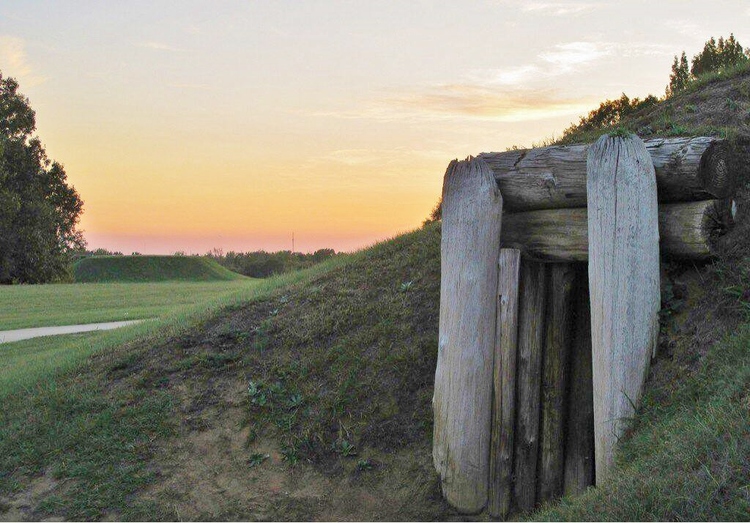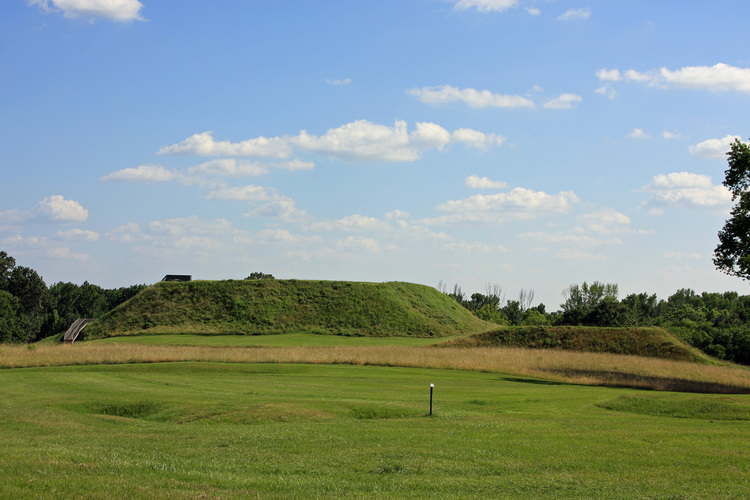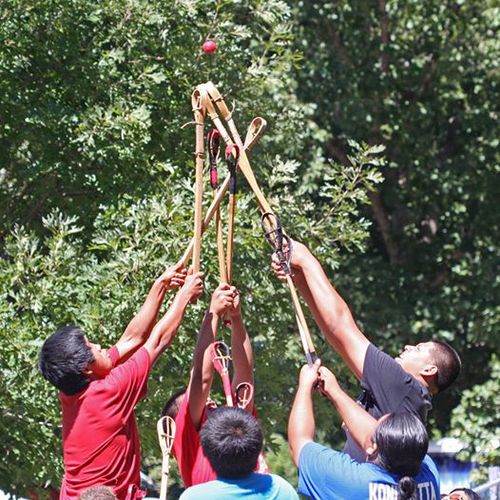
Ocmulgee National Monument seeks expansion and celebrates Native American history

Ocmulgee National Monument. Photo via Ocmulgee National Monument Association.
This weekend, more than 16,000 people will visit Ocmulgee National Monument in Middle Georgia for the annual Ocmulgee Indian Celebration–the largest Native American gathering in the Southeast.
Known locally as the “Indian Mounds,” Ocmulgee National Monument is a prehistoric Native American site that has been continuously inhabited by humans for some 17,000 years, according to the National Park Service: first by Paleo-Indians who arrived during the final Ice Age, and later by the Muscogee-Creek people, who are believed to have arrived around 900 A.D. and are credited with erecting the mounds.
The monument grounds consist of beautiful green space and bodies of water, all dedicated to the celebration and preservation of this historic resource, which is one of the three largest archaeological collections in the National Park System. Students visit the park for hands-on learning about history and nature. The welcome center hosts an exhibit hall with some 2,000 artifacts and videos about the various cultures that once dwelled on the land. Anyone who visits can take a guided tour, stroll along the nature trails, fish or even exercise–the five-to-10-minute climb to the top of the Great Temple Mound, which was once used for spiritual ceremonies and now offers views of the downtown Macon, Ga. skyline, is a popular activity among locals.

The Great Temple Mound. Photo via Ocmulgee National Monument Association.
In 2014, Knight Foundation awarded a $74,800 grant to the National Parks Conservation Association, so that it could conduct an economic impact analysis for a proposed Ocmulgee National Park and Preserve designation. The research is intended gauge current tourism levels, inform decisions on developing an Ocmulgee River Corridor and improve the overall visitor experience. As part of the project, researchers are holding community meetings to update citizens on the results of the study, as well as collect feedback on the project.
“Three meetings for the general public and two meetings for stakeholders and government officials were held in 2014,” said Jim David, the monument’s superintendent.
“The economic impact study funded by Knight Foundation is in the middle of being completed,” said Brian Adams, a Macon attorney and president of the Ocmulgee National Park and Preserve Initiative. “Right now, we are waiting on the results from a bill in Congress initiated by U.S. Representatives Sanford Bishop and Austin Scott and picked up by U.S. Senators Johnny Isakson and Saxby Chambliss. This bill looks at the expansion of the park from 700 to potentially a couple of thousand acres. Moreover, the name will change from Ocmulgee National Monument to Ocmulgee National Historical Park.
“If the bill is passed, a special resource study will come by affirmatively. This study will analyze and thoroughly look into a large corridor from Macon to Hawkinsville,” Adams added, referencing a nearby city.

A game of stickball at the 2014 Ocmulgee Indian Celebration. Photo via Ocmulgee National Monument Association.
It is difficult to make a better case for how the park can drive tourism and serve the local community than the example of the Ocmulgee Indian Celebration. This weekend’s festivities will include celebrate the culture of the Muscogee, Seminole, Cherokee, Choctaw and Chickasaw peoples through dance, face-painting, food, song and even a stickball game demonstration.
“This is a great opportunity for people to come out to interact and learn from the people whose ancestors were on this site for thousands of years before the City of Macon was founded,” David said. “It is an event that all members of the family can enjoy.”
The Ocmulgee Indian Celebration takes place on Sept. 19 and 20 at the Ocmulgee National Monument from 10 a.m. until 5 p.m. on both days. General admission is $6. For program details, visit the Ocmulgee National Monument Association website.
Recent Content
-
Artsarticle ·
-
Artsarticle ·
-
Artsarticle ·
